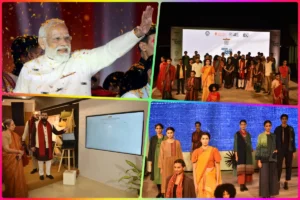Most of the initiatives suggested by the Indian Prime Minister are of purely development and welfare-enhancing nature rather than creating strategic stakes as often seen in the engagements of countries like China. These 12-step initiatives include, among others, the FIPIC SME Development Project, the Solar Project for Government buildings, providing desalination units for drinking water, supply of sea ambulances, setting up dialysis units, a 24×7 emergency helpline, Jan Aushadi Kendras, Yoga Centres, etc. India’s engagement with the Pacific Island countries includes both creations of social and economic infrastructure and community development projects. Cooperation in education and health and harnessing IT and digital technology for it has been one of the major focus areas.
India believes that the development story of the world including in the area of sustainable development would remain incomplete until the PICs are included in this journey. These countries need capital as well as technology for realizing their development potential. It is, therefore, India that has emphasized the need for development aid to the PICs and participated in South-South cooperation for the purpose. India’s thrust on collaboration with PICs countries in development and on human welfare is not new. At the time of need, India has stood behind the PICs through Humanitarian Assistance Disaster Relief (HADR) to PICs and supply of vaccines and medical items during the Covid-19 pandemic. The journey of deep engagement of India began with the inauguration of the Forum for FIPC in Fiji in 2014 under the leadership of the Indian Prime Minister, subsequently, the second meeting of the forum was held in Jaipur in 2015.
India believes in shared prosperity in the world. Keeping this in view, India established an India-UN Development Partnership Fund in 2017 with a primary objective to provide development assistance to developing countries, with a particular focus on the Least Developed Countries (LDCs) and small island developing states. The PICs could benefit from this fund, particularly for their sustainable development projects. The PICs consist of three major groups of islands: Melanesia, Micronesia and Polynesia. The 14 countries located in the southwest Pacific Ocean include the Cook Islands, Fiji, Kiribati, the Marshall Islands, Micronesia, Nauru, Niue, Samoa, Papua, Papua New Guinea, the Solomon Islands, Tonga, Tuvalu and Vanuatu. These resource-rich but economically less developed countries lie at the crossroads of strategically significant maritime trade routes and this is why the world powers are in competition to gain a deeper foothold.
However, India believes that development cooperation rather than competition for a strategic foothold in the region is needed more for peace and development in the region. This has been articulated by the Indian Prime Minister several times. In a gesture to display the extraordinary faith of the PICs in India, the Papua New Guinea Prime Minister James Marope, touched the feet of Indian Prime Minister Narendra Modi as he reached there for the third PIC summit. This stature is enjoyed by India, not because of its deep pocket but its sovereign, neutral, principled and non-exploitative foreign policy.
Source ANI






















